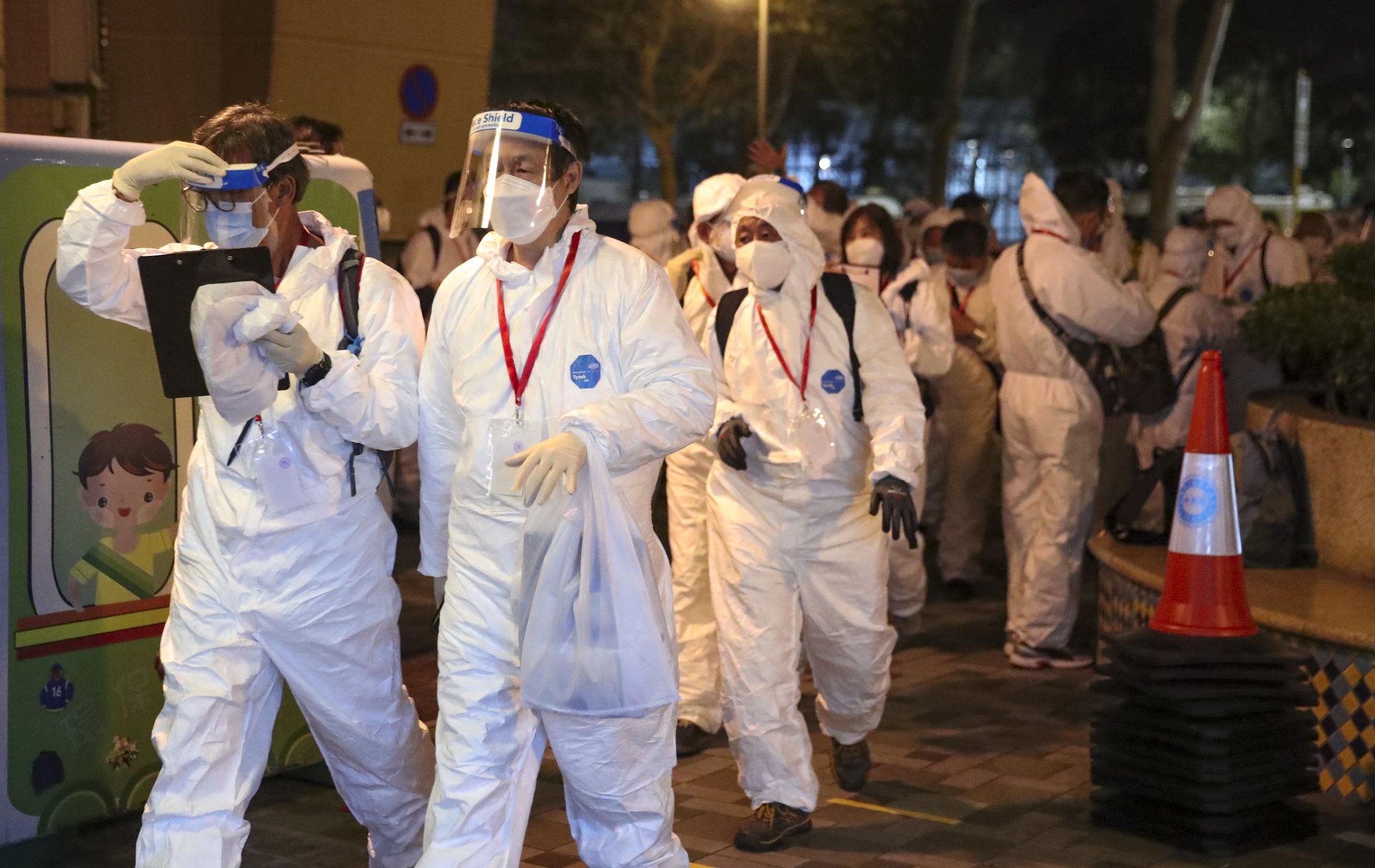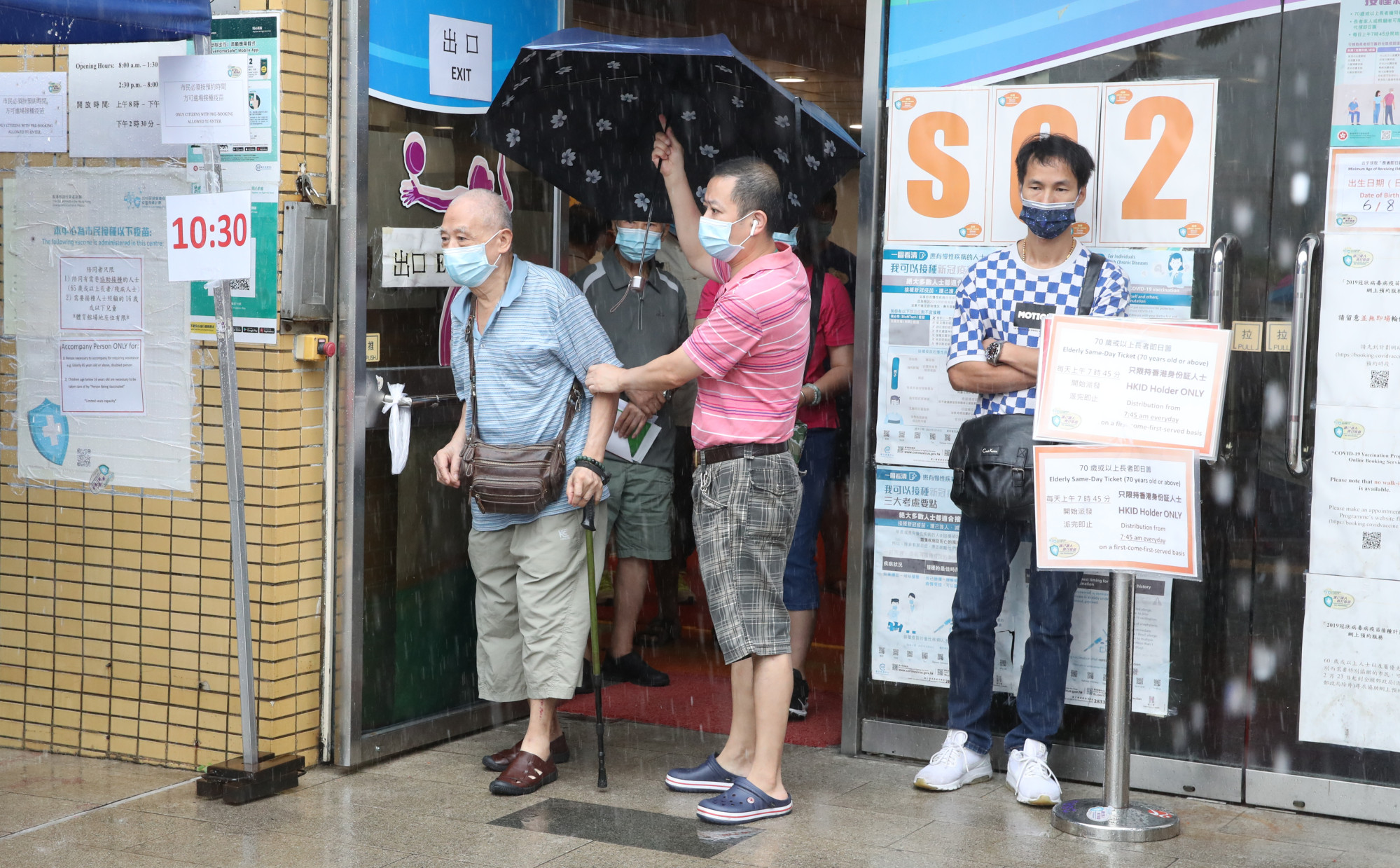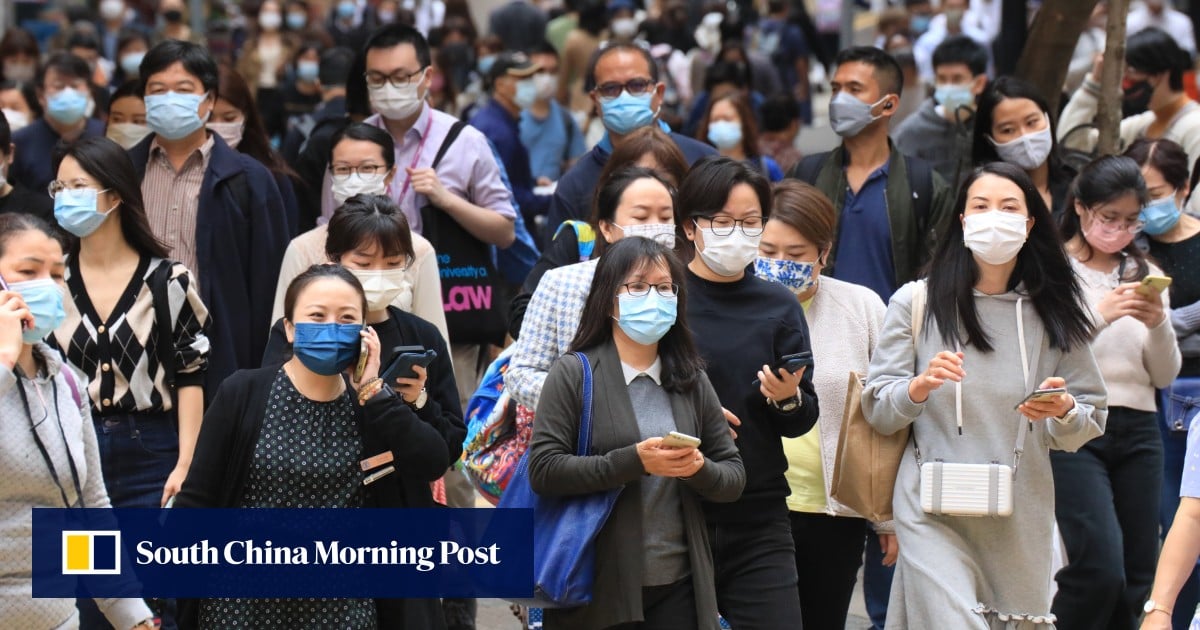Many lacked savings and were forced to endure cramped living conditions that strained family relationships. Those who sought mental health support through the public system faced a daunting 40-month waiting list.
I spent four days just lying under the canvas, not getting up to eat or anything. I thought about ending my life – it would be very easy to do it quickly
Two Hongkongers who spent the pandemic in the city recall in my book Pandemic Minds: Covid-19 and Mental Health in Hong Kong what we may have forgotten, perhaps not absorbed, and from which we have questionably healed. The following are extracts from the book:
In mid-March 2022, Hong Kong recorded the highest number of Covid-19 deaths per population size in the world, a rate of more than 25 deaths per 100,000 residents.
In this climate of fear, exhaustion, and uncertainty, the city saw an increase in people taking their own lives. The Suicide Index maintained by the Hong Kong Jockey Club Centre for Suicide Research and Prevention at the University of Hong Kong reached “crisis level”. In the seven days from March 22, there were 21 news reports about people killing themselves.
Forty-year-old Tai Lui (not his real name) was living a modest, stable life working as a mechanic and living alone in Kowloon. However, when the pandemic struck, he lost his job and became homeless and his life quickly spiralled.
“At the start of the pandemic, I was living on the top floor of a walk-up building in Prince Edward and working for the Cross Harbour Tunnel.
“My job was to retrieve the vehicles that broke down in the tunnel. I’d been in the job almost seven years and enjoyed it.
“A year into the pandemic, in 2021, two of my colleagues got Covid-19 and died suddenly. I knew them and was really shocked and sad. They were only in their early 30s and vaccinated. Both of them lived in a hotel on Tsing Yi Island. I don’t know why they got Covid-19.
“My boss wanted me to move onto their team to replace one of them. I didn’t want to. I was very sad and afraid, so I quit my job.
“I couldn’t afford my rent. I’m not in contact with my family; it’s been that way for many years. I had nowhere to go, and had the idea of living on the rooftop of the building where I’d been renting.
“I found some black canvas and made a shelter, a bit like a tent. I started living on the rooftop in July 2021 and stayed there for nine months. Living outside, under the sun and the rain, it was like camping.
I’d tried to get help, and they didn’t think I needed the service. It made me feel even more helpless
“For quite some time no one seemed to notice, or care, that I was there.
“Then I lost my wallet with my ID card and driving licence. That really stressed me out. I needed to replace the cards. I knew if I didn’t, it would be hard to get another job.
“My stress got worse. I started thinking, ‘What if I was dead’? I spent four days just lying under the canvas, not getting up to eat or anything.
“I thought about ending my life – it would be very easy to do it quickly. But then I thought I should try everything to stay alive before doing anything like that.”

“My thoughts were going around and around my head, and I couldn’t sleep. I didn’t know what was going on with me.
“I wondered if I had a mental problem, so I went to Yau Ma Tei Specialist Clinic. I spoke to the nurse and told her I’d been having negative thoughts and couldn’t sleep at night. She said, ‘You look OK’. That was it.
“I’d tried to get help, and they didn’t think I needed the service. It made me feel even more helpless.
“After more than six months living on the roof, someone noticed that I was staying there illegally. The landlord of the top flat was legally responsible for the rooftop. They sent him a letter, and I was evicted.
“I was referred to ImpactHK, an NGO that helps the homeless, to assess my situation.
“They let me stay in their hostel [and] in August 2022, I got a job working [there], helping manage the activities at the sports centre. I would rather work than claim a government benefit.
“It’s easy to say, ‘Just talk to someone’. But if you’ve tried and are rejected, it feels easier not to. The caseworker at ImpactHK was kind and really listened. That helped me open up and be more willing to share.”
I felt so alone. There was fear. I didn’t go out; I just wanted to lie down. I felt so weak and tired and wanted to sleep all day and night. I didn’t want to bathe. I didn’t feel hungry
In Hong Kong, foreign domestic workers are required by law to live in their employer’s home. As flats in the city are small, it is common for these workers to be forced to share a room with a child or older people or to sleep in the living room, kitchen, or even toilet.
Tasked with keeping their employer’s home clean, these women were frontline workers in fighting the virus. Yet during the pandemic they were often portrayed as people spreading the virus.

Catalina has been working as a domestic helper in Hong Kong for 23 years. During the pandemic, she faced a challenging period when three sets of employers left Hong Kong within the span of just three years.
The financial pressure and stress of finding new employment, compounded by testing positive for Covid-19 twice, led her into a state of depression.
“In 2020, my employer left Hong Kong because of Covid-19, so I needed to find another employer. After one year with my new employer, they also left because of the situation in Hong Kong.
“I got Covid-19 for the first time in 2021; it was a bad year. Moving jobs three times in three years was stressful.
“In February 2022, my new employer was pregnant and expecting a baby in three weeks when I got Covid-19 again.
When I recovered from Covid-19, I wasn’t feeling like my old self.
“I couldn’t stay at my employer’s house because I didn’t want to infect them, and I couldn’t go to hospital because then she wouldn’t be able to deliver her baby at the hospital.
“If the hospital knew there was a Covid-19-positive person in the same house they wouldn’t have let her enter.
“So I stayed at a boarding house. I was in a small room by myself because I didn’t want anyone to catch the virus. I just stayed in that room waiting for whatever help I could get.
“It was difficult. When I recovered from Covid-19, I wasn’t feeling like my old self.”

“My employer had her baby. Although work was busy, the baby gave me a lot of happiness. Then, when the baby was three months old, my employers went away for two months. The house was quiet; there was nothing to do.
“It was a time when there were heavy restrictions about gatherings. I was lonely and alone … I felt so alone. There was fear. I didn’t go out; I just wanted to lie down.
“I felt so weak and tired and wanted to sleep all day and night. I didn’t want to bathe. I didn’t feel hungry. One day I realised I hadn’t eaten for a day and went to the fridge. It was empty.
“I left the flat and the security guard downstairs said I hadn’t been out for two weeks. He didn’t know there was anyone in the flat.
“That was when I realised I had to do something. I thought if I didn’t ask for help, I might hurt myself, but I hadn’t reached that point yet.
In the migrant worker community, there is a lot of stigma about mental health. There is a thinking that if you ask for help you are weak
“I called my friends and told them I was very lonely. One of them put me in touch with a counsellor in the Philippines.
“After my depression, I started volunteering and doing migrant initiatives. For me, my depression was a turning point where I rediscovered my strength.
“One of my friends thinks of depression as a way to find out your deeper person. I definitely changed through that dark time and I am stronger now.
“In the migrant worker community, there is a lot of stigma about mental health. There is a thinking that if you ask for help you are weak, which means that many people don’t ask for help when they need it.
“There is a culture in the Philippines that makes people afraid to tell their story. You are afraid that people will talk about you and that what you say will go back to the Philippines.
“Many of my friends don’t tell their problems to their family. We try to pretend that we are superhuman, but in reality, we are not.”
Pandemic Minds: Covid-19 and Mental Health in Hong Kong is published by Hong Kong University Press (May 2024) and available at Bookazine.
If you have suicidal thoughts, or you know someone who is, help is available. For Hong Kong, dial +852 18111 for the government-run “Mental Health Support Hotline” or +852 2896 0000 for The Samaritans and +852 2382 0000 for Suicide Prevention Services. In the US, call or text 988 or chat at 988lifeline.org for the 988 Suicide & Crisis Lifeline.







